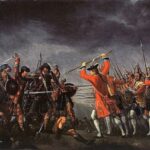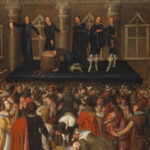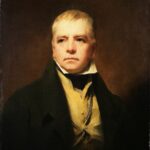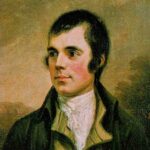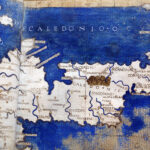David Livingstone (1813–1873): The Missionary General Who Conquered Africa’s Heart with a Bible, Not a Sword
If the 19th century had its empire-builders, then Scotland gave it one who marched without an army. David Livingstone, the missionary, physician, and explorer, was no soldier in uniform, yet he waged campaigns across a continent with the zeal of a field commander and the stamina of a Highland infantryman. His theatre of war was not against nations but against ignorance, disease, and the cruelty of the East African slave trade. Livingstone was a man of two worlds—a son of the industrial tenements of Blantyre, forged in the kilns of Scottish Calvinism, and yet at home beneath the vast skies of central Africa. In an era when empires expanded with cannon and coin, Livingstone chose maps, medicine, and moral conviction. “He was,” wrote historian Tim Jeal, “the last of the great missionary-explorers, a Victorian knight errant whose battlefield was the unknown” (Jeal, Livingstone, 1973).
Born into poverty in Lanarkshire in 1813, Livingstone spent his boyhood working long hours at the cotton mill while reading books late into the night. It was a Scottish education in the rawest sense—discipline, thrift, faith. He studied medicine and theology in Glasgow, and in 1841, he was dispatched to southern Africa as a missionary of the London Missionary Society. But almost from the outset, he chafed at conventional preaching. His ambition, like the continent he would soon traverse, was vast: to bring Christianity, commerce, and civilization—the three C’s of imperial philanthropy—to Africa’s interior. His mission became less about pulpits and more about pathfinding.
Between 1849 and 1856, Livingstone carried out a series of remarkable transcontinental journeys through southern and central Africa, traveling thousands of miles across what are now Botswana, Zambia, Angola, and Mozambique. He became the first European to cross the African continent from west to east, charting rivers, mountain ranges, and vast territories previously unknown to European cartographers. Along the way, he discovered—as Europeans would put it—the mighty Victoria Falls, which he named after his queen. “Scenes so lovely must have been gazed upon by angels in their flight,” he wrote, capturing the wonder with which he met nature. But Livingstone was more than an awestruck traveler. He took precise scientific measurements, kept exhaustive journals, and mapped trade routes that would become arteries for both missionaries and colonial administrators.
His setbacks were numerous. Livingstone often underestimated the complexity of African politics and overestimated the efficacy of British intervention. His grand hope—to open the Zambezi River as a “highway of commerce and salvation”—ended in failure during the ill-fated Zambezi Expedition (1858–1864), funded by the British government. The river turned out to be unnavigable due to rapids and cataracts, and the expedition was marred by disease, death, and disillusionment. Worse still, his medical judgment faltered when he prescribed the use of quinine to excess, and he made strategic blunders in judgment about settlement and agriculture. “His leadership was unsteady,” noted historian Oliver Ransford, “and he was often autocratic, secretive, and intolerant of dissent” (Ransford, David Livingstone: The Dark Interior, 1978).
But it was not military success or administrative competence that made Livingstone a figure of such towering influence. It was his relentless opposition to the slave trade, particularly in east Africa. In his later expeditions, especially during his final years wandering the regions of present-day Tanzania and Congo, he documented the horrors of the slave routes in chilling detail. He called for British intervention—not conquest, but protection—and used his pen as his primary weapon. His letters and lectures stirred the conscience of Victorian Britain, linking Christianity not to domination but to liberation. “If my disclosures regarding the terrible Ujijian slavery should lead to the suppression of the slave trade,” he wrote, “I shall regard that as a greater matter than the discovery of all the Nile sources together.”
For Scotland, Livingstone became a national icon, the embodiment of Presbyterian perseverance and moral authority. His achievements were lionized in the press and pulpit alike. Statues rose from Glasgow to Blantyre, not merely in honor of what he had done, but of who he was: a man of humble birth who brought global dignity to Scottish character. He was not a conqueror, yet his name reached farther than many generals. “Livingstone proved that a Scotsman need not carry a sword to influence the world,” wrote historian Brian Stanley. “His was a conquest of conscience” (Stanley, The Bible and the Flag, 1990).
In 1871, after years of silence, he was famously “found” by American journalist Henry Morton Stanley near Lake Tanganyika, leading to the apocryphal greeting: “Dr. Livingstone, I presume?” Though ill, skeletal, and half-forgotten, Livingstone had never stopped moving, never stopped recording, and never stopped praying. He died two years later in 1873, in what is now Zambia. His African companions buried his heart under a tree and carried his embalmed body nearly 1,000 miles to the coast so it could be returned to Britain. He was interred in Westminster Abbey, the first Scotsman of humble origin to be laid among kings, explorers, and poets.
Livingstone’s legacy was double-edged. His maps opened Africa to European powers who came not to civilize but to divide. His missionary dreams would be co-opted by imperial administrators. Yet his example—his integrity, endurance, and deep empathy for African peoples—endured. Scotland, a nation of preachers and teachers, of explorers and engineers, had in him a man who was all of these. Not a general of men, but a general of moral purpose.
References
- Jeal, Tim. Livingstone. Heinemann, 1973.
- Ransford, Oliver. David Livingstone: The Dark Interior. John Murray, 1978.
- Stanley, Brian. The Bible and the Flag: Protestant Missions and British Imperialism in the Nineteenth and Twentieth Centuries. Apollos, 1990.
- Livingstone, David. Missionary Travels and Researches in South Africa. London: John Murray, 1857.
- Ross, Andrew. David Livingstone: Mission and Empire. Hambledon Continuum, 2002.

